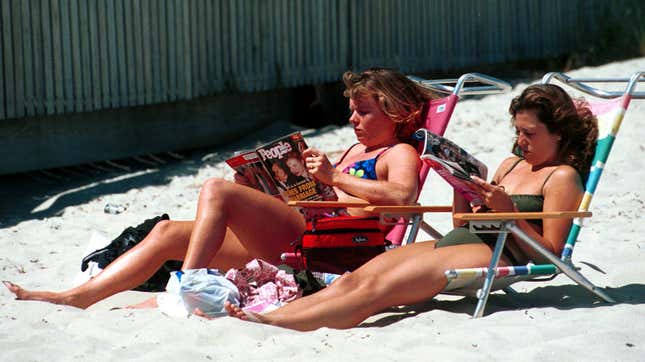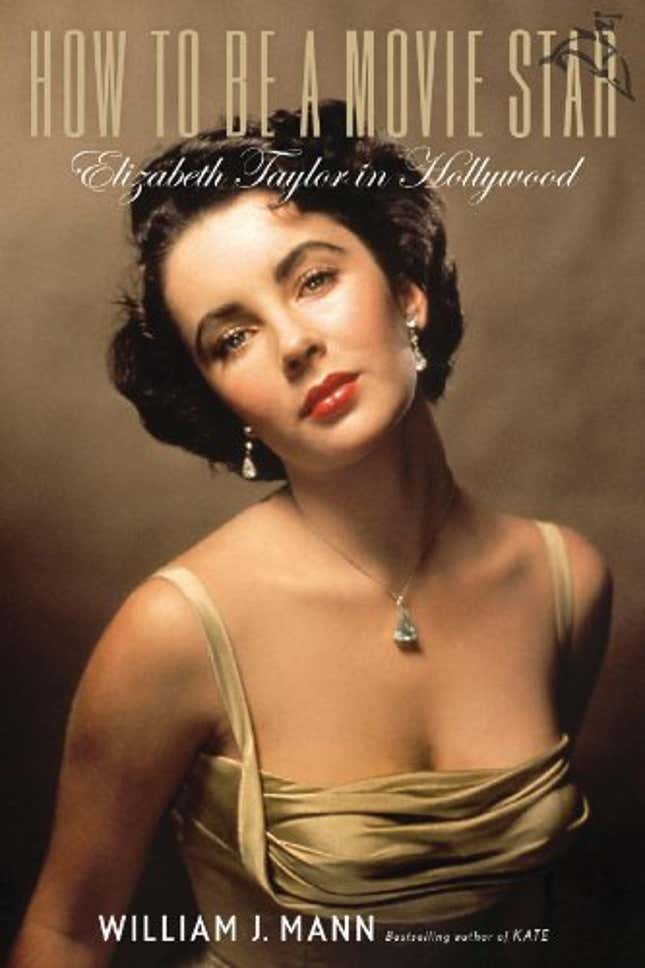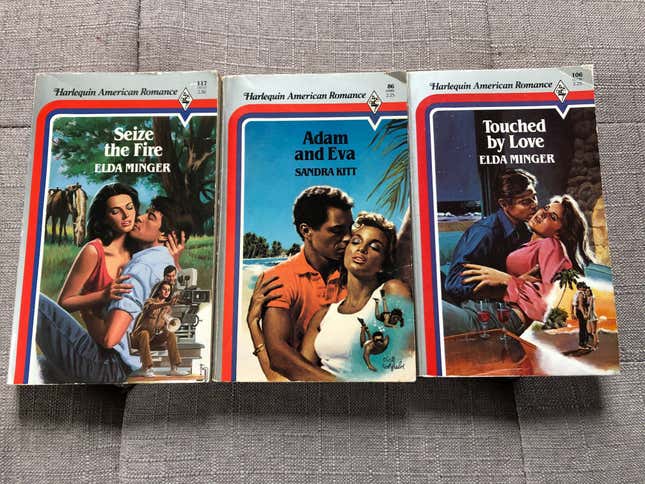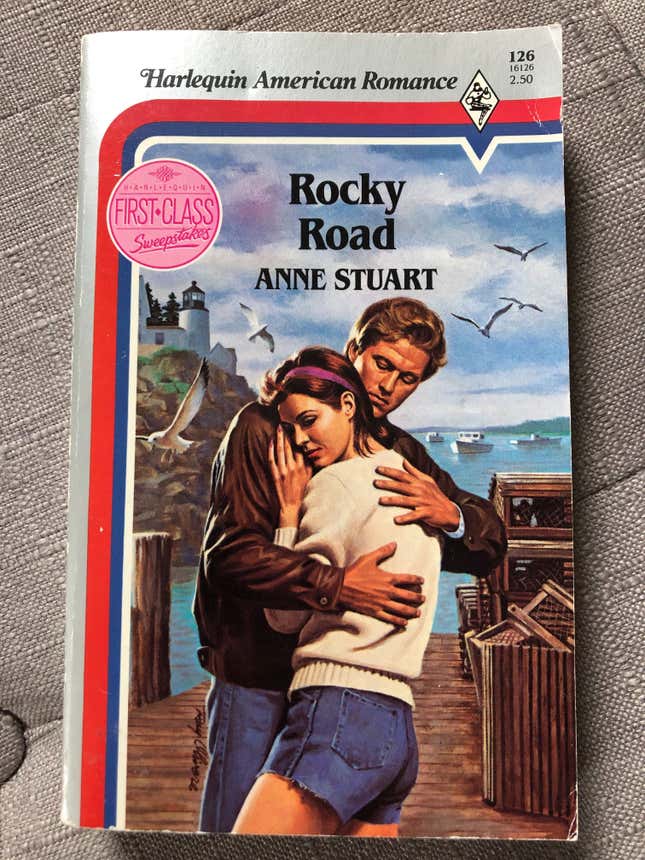Summer Reading Diary: Being Lazy with Hollywood History and a Big Box of 1980s Romance Novels
BooksEntertainment

Despite the fact that it’s been well over a decade since I left formal schooling, my reading habits still stubbornly follow the ghostly traces of the grading calendar year. The days get longer, the sun gets hotter, and all I want is to wander into a Barnes and Noble and wander out with a combination of lightly educational and absolutely pulpy books in formats friendly to watery environments—the pool, the lake, the beach, a sprinkler, a small plastic bucket, whatever.
Once May hits, I want reading to feel like languorous summer nostalgia: flipping through a vintage People magazine, circa 1993; those first two weeks of summer when my time became gloriously unstructured and I could stay up until nearly dawn tearing through fantasy novels; and a light sprinkling of “improving” reading, taken off the teacher-provided handout—selecting for the juiciest options, of course. (A special shout-out to the teacher who put Forever Amber on the list one year.) In my current life, that translates to a big stack of nominally work-adjacent books that truthfully are an attempt to channel being a preteen and knowing that weeks and weeks without homework stretched before me.

Hence I set the tone for the next three months the week before Memorial Day by picking up How to Be a Movie Star: Elizabeth Taylor in Hollywood, by William J. Mann. I told myself this one was work-related; I’ve been writing so much about royals and, consequently, thinking a lot about celebrity, public image, and PR, and it’s hard to think of a bigger case study than Liz Taylor at the height of her fame. But really I zipped through it because the book is a delight, and absolutely perfect for the season—breezy enough to evoke the feeling of paging through a glossy magazine, but Mann also has great sources who are truly insightful on the work of making and maintaining a star. He talks to agents, publicists, assistants, which is to say, exactly the type of people who know where all the bodies are buried.
Now, every book I read this summer needs to evoke this same feeling or I’ll be disappointed.
The bits about Liz and Richard Burton in Rome put me onto the book I’m currently working through, Shawn Levy’s La Dolce Vita Confidential, which is a chronicle of how Rome became ultra-hip in the 1950s. It’s sort of a Universal Studios tour of the cultural moment, and unfortunately prone to sentences like, “Hollywood on the Tiber wasn’t built in a day.” But it’s a good overview and I’m particularly enjoying all the bits about Hollywood epics filmed in Italy. (Quo Vadis, more like Sorry, Who?)
-

-

-

-

-

-

-

-

-

-

-

-

-

-

-

-

-

-

-

-

-

-

-

-

-

-

-

-

-

-

-

-

-

-

-

-

-

-

-

-










































